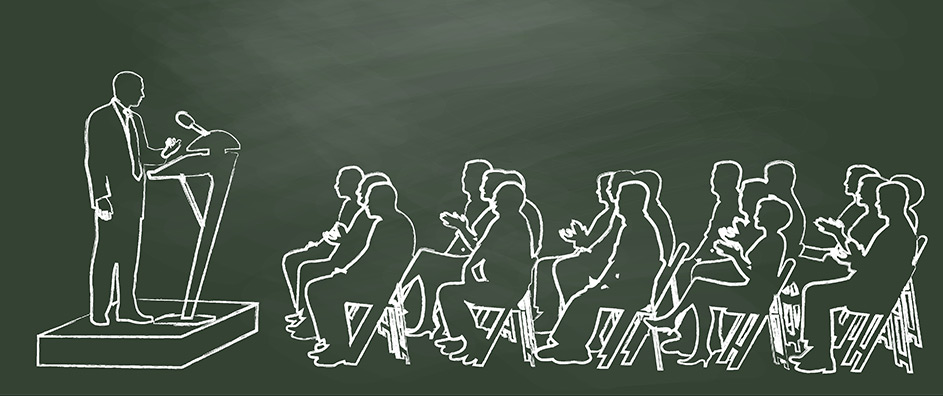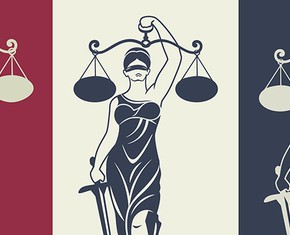The views expressed in our content reflect individual perspectives and do not represent the authoritative views of the Baha'i Faith.
Outrage fatigue; (noun): the exhaustion and entropy that occurs from too much outrage. Occurs in waves, often during peak election cycles. Outrage fatigue tends to afflict politically active people, and can be worse when your party is not in power, or has a power deficit. It escalates during environmental catastrophes, especially ones that are caused by human negligence. It also develops during troublesome economic times like corporate bailouts and high unemployment. Outrage fatigue may threaten close friendships. – Urban Dictionary
I know you’ve noticed it: since the world offers us so much to be morally outraged about lately; many people have begun to suffer a new syndrome called “outrage fatigue.” Also known as compassion fatigue, this newly-identified psychological condition, brought on by the constant, overwhelming flow of information we’re now exposed to, can cause us to shut down our overburdened empathy reservoirs, to mentally and spiritually check out, to gradually lose our ability to care about the world’s problems and want to do something to fix them.
After all, what good does it do when you’re constantly upset about rampant injustice, and you also feel powerless to do anything about it? That’s just a recipe for intense frustration and moral impotence.
In the United States we’re nearing the completion of our regular four-year outrage fest known as the election cycle, which somehow gives everyone a license to feel completely and utterly aggrieved. One political candidate makes a statement that outrages half the populace; then another candidate fires back and the other half feels the outrage. Everyone takes offense at something. Emotions run high. The cumulative impact of this constant bombardment of negativity outrages us. Then those angry emotions regularly turn violent, and thanks to our cellphone cameras, which make sure that somebody now records every moment of every day, we have even more reason to get frustrated, outraged and downright mad. When we see the recordings of those angry outbursts replayed, over and over ad nauseum, online and on every news channel, sooner or later we can burn out and stop caring, or begin to think that we’ve reached a new normal.

The 24-hour outrage factory run by modern political campaigns only exacerbates the situation. Political operatives know that moral outrage motivates activism, so they attempt to manipulate us by appealing to our sense of right and wrong. They show us an injustice and tell us that their candidate or their party will fix it, using our emotional outrage to attempt to rally everyone to their side. This back-and-forth oppositional cycle, of course, ultimately creates even greater outrage, because it leads to more partisanship, disunity, conflict and antagonism, not to mention the cynicism and feelings of helplessness it eventually generates.
Physiologically, though, we know that it’s very hard for normal human beings to sustain anger and outrage for very long. Like our tempers, water only boils for a short time before it begins to evaporate. Psychologists tell us that nobody can maintain a constant state of intense moral outrage indefinitely. An over-stimulated sense of umbrage and injustice will soon, like any over-used muscle, get tired and stop functioning. So if you find yourself feeling distinctly unmoved by news stories about terrible events, enormous injustice and horrible atrocities, you might have OF—outrage fatigue.
The Baha’i teachings have a solution: unity.
Rather than limiting our feelings of compassion toward certain individuals or groups of people, or joining one side of the political war to battle the other side, the Baha’i writings advise us to adopt mercy, compassion and loving-kindness toward all people, not just some people:
All men have been created to carry forward an ever-advancing civilization. The Almighty beareth Me witness: To act like the beasts of the field is unworthy of man. Those virtues that befit his dignity are forbearance, mercy, compassion and loving-kindness towards all the peoples and kindreds of the earth. – Baha’u’llah, Gleanings from the Writings of Baha’u’llah, p. 215.
What can motivate sustainable, consistent activism and assistance for the downtrodden, the oppressed and the needy? Outrage over the world’s injustice certainly has its place, but ultimately those who rely on a continuing sense of outrage to fuel their activism run the risk of OF and inevitable burnout. Eventually, those inspired solely by outrage and anger will often check out, not only as a result of unsustainable and unpleasant emotions but for psychological self-protection. This world, we all know, has an unlimited amount of pain and suffering to offer, and therefore can provoke unlimited, never-ending outrage. The human soul, though, can only take a limited dose of that kind of outrage before numbness sets in.
The Baha’i teachings recommend a much more reliable, permanent mental and spiritual fuel for those who want to change the world—the “sweetness of God’s compassion:”
When our thoughts are filled with the bitterness of this world, let us turn our eyes to the sweetness of God’s compassion and He will send us heavenly calm! If we are imprisoned in the material world, our spirit can soar into the Heavens and we shall be free indeed! – Abdu’l-Baha, Paris Talks, p. 111.
If you think about it, you’ll realize that the most effective and best-loved leaders and change agents in human history—people like Gandhi and King and Mother Teresa and especially the prophets and founders of the world’s great Faiths—all based their work on love and compassion rather than anger and outrage. Certainly those beloved figures felt outrage at injustice and war and poverty and prejudice, but rather than using that outrage to continually stoke their inner fire, they used a much more gentle and effective fuel—the everlasting and eternal fuel of universal love.
You May Also Like
Comments

















I want to post this article, but I'm stopped by this aspect, because I don't like it when people post things that make claims about the sciences without any references.
We develop digestive problems, we become irritable, we experience insomnia, we are short-tempered, and can even become paranoid. Our brains are drained of the chemical balance necessary for clear thought and for emotional engagement. Hence, apathy. We lose the ability to react or care.
I regret I don't have the citations. This was a study I read in a Human Resources magazine years ago when I was managing a team of software developers. I did save it, but I'm many new computers down the line from that and didn't imagine I'd have to refer to it again. I believe I did write an article about it some time ago. You might see if you can find the study online.